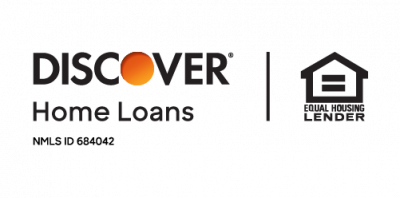Discover Home Loans: The Pros and Cons of Home Equity Loans vs. HELOCs
NEW YORK, February 16, 2022 (Newswire.com) - A home equity loan and a home equity line of credit (HELOC) are two entirely different products, each with its own advantages and disadvantages. Ultimately, the pros and cons are going to vary from person to person and may also depend on current rates. You should check out the latest rates on lender websites like current home equity loan rates from Discover.
Home Equity Loan Pros and Cons
Home equity loans offer a fixed interest rate, so monthly payments won't change and are the same for a set period of time. Home equity loans are typically used to consolidate debt, to make home improvements, or to finance one-time large expenses. Home equity loan terms tend to last 10-30 years.
PROS
- Fixed interest rates, which means the home equity loan rates and payment amount remain the same throughout the period of the loan.
- Borrowers receive the funds in a lump sum at closing which can be used for a variety of different needs like Home Improvement, Debt Consolidation, weddings, etc.
CONS
- Home equity loans are a lump sum, whereas HELOCs offer funds as needed.
- Since rates are fixed, the rate may be higher than HELOCs' initial variable rate
HELOC Pros and Cons
A HELOC functions similar to a credit card. The homeowner is given a credit limit (which is usually based on their equity) and can withdraw as much as they would like during a draw period. Usually, HELOCs have a draw period of 5-10 years and repayment terms up to 20 or 30 years.
PROS
- Owners only pay interest on what they draw.
- Generally the initial interest rates will start lower than home equity loans, but they could go up.
- The credit revolves as the principal balance is paid down, giving flexibility to have access to funds as needed. The principal balance is the amount owed before interest.
- Can be used for a variety of different reasons similar to Home Equity Loans.
CONS
- The interest rates are variable, not fixed, which means they can increase, as well as the monthly payment amount.
- Generally speaking, HELOCs can be riskier for those who lack financial discipline given their variable interest rates and payment amounts
- Revolving credit means it's possible to carry the balance to the next month, and the owner can decide to pay a minimum instead of the balance. That means it will accumulate interest on top of the principal balance, which can add up over time.
Bottom Line
Home equity loans are often used for large, one-time expenses and home improvement whereas HELOC loans are often better suited for those who need an additional line of credit with a relatively low interest rate.
Home equity loans and HELOCs can both be useful depending on each homeowner's circumstances. It's important to understand that they both use a home as collateral and that it never hurts to consult a licensed professional for any financial advice.
Contact: michael.bertini@iquanti.com
Source: Discover Home Loans
